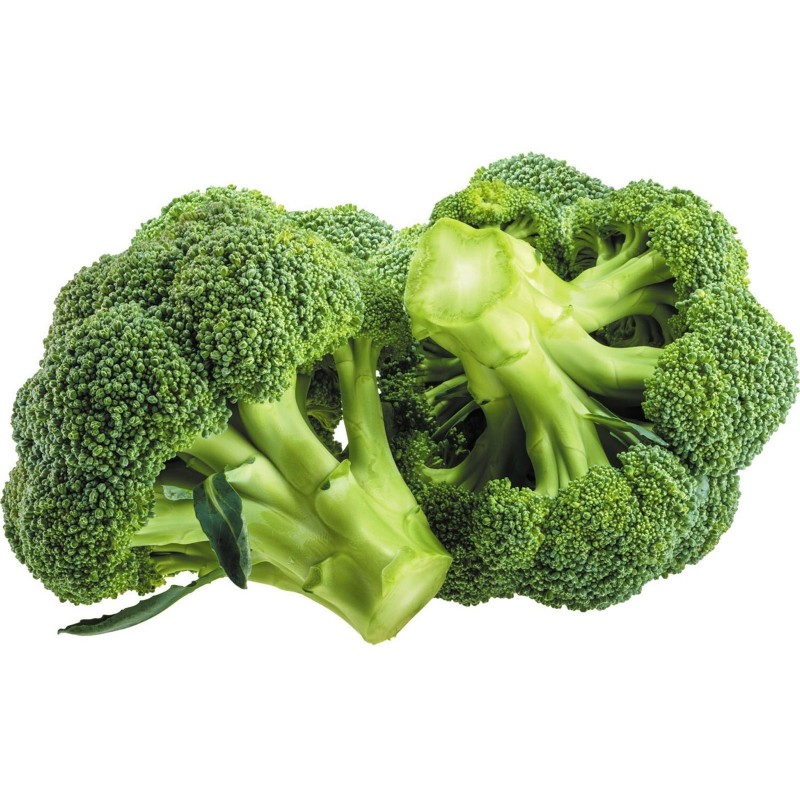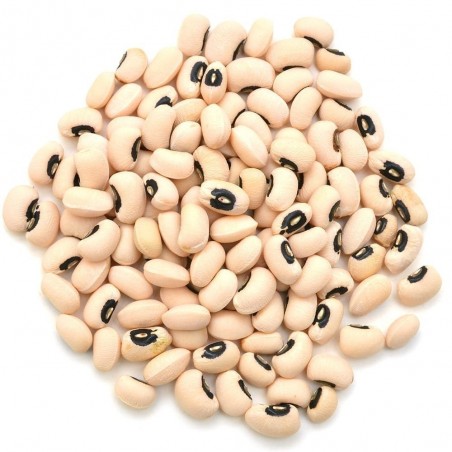
Broccoli Ramoso Calabrese Seeds
Broccoli Ramoso Calabrese Seeds
Price for Package of 50 seeds.
Old reliable heirloom variety, light green plants, 10 cm green central head, lots of medium sized side shoots, non-uniform in maturity, more productive than many hybrids, excellent quality and flavour. Sowing instructions: Plant seeds 0.5 inches deep indoors from March-April or directly outdoors from May-June. Transplant seedlings from May-July spacing
Broccoli Ramoso Calabrese Seeds
Price for Package of 50 seeds.
Old reliable heirloom variety, light green plants, 10 cm green central head, lots of medium sized side shoots, non-uniform in maturity, more productive than many hybrids, excellent quality and flavour.
Sowing instructions: Plant seeds 0.5 inches deep indoors from March-April or directly outdoors from May-June. Transplant seedlings from May-July spacing them 18 inches apart in rows spaced 36 inches apart. Harvest from July-September.
Maturity: 60-70 days Open-pollinated Heirloom
WIKIPEDIA:
Broccoli is an edible green plant in the cabbage family whose large flowering head is eaten as a vegetable.
The word broccoli comes from the Italian plural of broccolo, which means "the flowering crest of a cabbage", and is the diminutive form of brocco, meaning "small nail" or "sprout".[3] Broccoli is often boiled or steamed but may be eaten raw.[4]
Broccoli is classified in the Italica cultivar group of the species Brassica oleracea. Broccoli has large flower heads, usually green in color, arranged in a tree-like structure branching out from a thick, edible stalk. The mass of flower heads is surrounded by leaves. Broccoli resembles cauliflower, which is a different cultivar group of the same species.
Broccoli is a result of careful breeding of cultivated Brassica crops in the northern Mediterranean starting in about the 6th century BC.[5] Since the time of the Roman Empire, broccoli has been considered a uniquely valuable food among Italians.[6] Broccoli was brought to England from Antwerp in the mid-18th century by Peter Scheemakers.[7]Broccoli was first introduced to the United States by Southern Italian immigrants, but did not become widely popular until the 1920s.
Varieties

There are three commonly grown types of broccoli. The most familiar is Calabrese broccoli, often referred to simply as "broccoli", named after Calabria in Italy. It has large (10 to 20 cm) green heads and thick stalks. It is a cool season annual crop. Sprouting broccoli has a larger number of heads with many thin stalks. Purple cauliflower is a type of broccoli grown in Europe and North America. It has a head shaped like cauliflower, but consisting of tiny flower buds. It sometimes, but not always, has a purple cast to the tips of the flower buds.
Other cultivar groups of Brassica oleracea include cabbage (Capitata Group), cauliflower and Romanesco broccoli (Botrytis Group), kale and collard greens (Acephala Group), kohlrabi (Gongylodes Group), Brussels sprouts (Gemmifera Group), and kai-lan (Alboglabra Group).[9] Rapini, sometimes called "broccoli raab" among other names, forms similar but smaller heads, and is actually a type of turnip (Brassica rapa). Broccolini or "Tenderstem broccoli" is a cross between broccoli and Chinese broccoli. Beneforté is a variety of broccoli containing 2–3 times more glucoraphanin that was produced by crossing broccoli with a wild Brassica variety, Brassica oleracea var villosa.[10]
Production
| Broccoli production—2014 includes cauliflower,[11] millions of tonnes | |
|---|---|
| Country | Production |
| World | |
In 2014, global production of broccoli (combined for production reports with cauliflowers) was 24.2 million tonnes, with China and India together accounting for 74% of the total (table).[11] Secondary producers, each having one million tonnes or less annually, were the United States, Spain, Mexico and Italy (table).[11] The US Department of Agriculture reported that national production just of broccoli in 2014 was 0.95 million tonnes, nearly all of which was grown in California.[12]
Cultivation
Broccoli is a cool-weather crop that does poorly in hot summer weather. Broccoli grows best when exposed to an average daily temperature between 18 and 23 °C (64 and 73 °F).[13] When the cluster of flowers, also referred to as a "head" of broccoli, appear in the center of the plant, the cluster is green. Garden pruners or shears are used to cut the head about an inch from the tip. Broccoli should be harvested before the flowers on the head bloom bright yellow.[14]
While the heading broccoli variety performs poorly in hot weather, mainly due to insect infestation, the sprouting variety is more resistant, though attention must be paid to sucking insects (such as aphids), caterpillars and whiteflies. Spraying of bacillus thuringiensis can control caterpillar attacks, while a citronella vase may ward off whiteflies.[15]
Pests
Mostly introduced by accident to North America, Australia and New Zealand, "cabbage worms", the larvae of Pieris rapae, the small white butterfly are a common pest in broccoli.[16]
Nutrition
| Nutritional value per 100 g (3.5 oz) | |
|---|---|
| Energy | 141 kJ (34 kcal) |
| Carbohydrates | 6.64 g |
| Sugars | 1.7 g |
| Dietary fiber | 2.6 g |
| Fat | 0.37 g |
| Protein | 2.82 g |
| Vitamins | |
| Vitamin A equiv. beta-Carotene lutein zeaxanthin | (4%) 31 μg (3%) 361 μg1403 μg |
| Thiamine (B1) | (6%) 0.071 mg |
| Riboflavin (B2) | (10%) 0.117 mg |
| Niacin (B3) | (4%) 0.639 mg |
| Pantothenic acid (B5) | (11%) 0.573 mg |
| Vitamin B6 | (13%) 0.175 mg |
| Folate (B9) | (16%) 63 μg |
| Vitamin C | (107%) 89.2 mg |
| Vitamin E | (5%) 0.78 mg |
| Vitamin K | (97%) 101.6 μg |
| Minerals | |
| Calcium | (5%) 47 mg |
| Iron | (6%) 0.73 mg |
| Magnesium | (6%) 21 mg |
| Manganese | (10%) 0.21 mg |
| Phosphorus | (9%) 66 mg |
| Potassium | (7%) 316 mg |
| Sodium | (2%) 33 mg |
| Zinc | (4%) 0.41 mg |
| Other constituents | |
| Water | 89.3 g |
Link to USDA Database entry | |
| |
| Percentages are roughly approximated using US recommendations for adults. Source: USDA Nutrient Database | |
As shown on the table, a 100 gram serving of raw broccoli provides 34 kcal and is an excellent source (20% or higher of the Daily Value, DV) of vitamin C and vitamin K. Raw broccoli also contains moderate amounts (10–19% DV) of several B vitamins and the dietary mineral manganese, whereas other essential nutrients are in low content. Broccoli has low content of carbohydrates, protein, fat, and dietary fiber.
Boiling broccoli reduces the levels of sulforaphane, with losses of 20–30% after five minutes, 40–50% after ten minutes, and 77% after thirty minutes.[17][18] However, other preparation methods such as steaming,[18][19] microwaving, and stir frying had no significant effect on the compounds.[17]
Broccoli also contains the carotenoid compounds lutein and zeaxanthin in amounts about 6 times lower than in kale.
Taste
The perceived bitterness of cruciferous vegetables such as broccoli varies from person to person, but the functional underpinnings of this variation are not known. Some research reports that the gene TAS2R38 may be responsible for bitter taste perception in broccoli.[20] Other factors, such as isothiocyanates and polyphenols, are also likely involved in bitterness perception.[21]
Gallery
|
| HEIRLOOM ? | Yes |
|---|---|
| Organic Seeds ? | Organic Seeds |
| Edible ? | Edible |
| Perennial ? | Perennial plant : Yes |
| Semințe culese manual? | Semințe culese manual |
| Resistant to cold and frost ? | Resistant to cold and frost |
| Origin Country of Variety ? | Variety from: Italy |
| Medicinal Plant ? | Medicinal Plant: Yes |
| Scientific name: | Brassica oleracea |


Aprecierea ta pentru recenzie nu a putut fi trimisa
Reclama un comentariu
Raport trimis
Reclamatia tau nu a putut fi trimisa
Scrie-ti recenzia
Recenzia a fost trimisa
Recenzia ta nu a putut fi trimisa
🌍 Livrare Globală din UE
Expediem comenzi la nivel mondial din Uniunea Europeană prin poștă înregistrată cu confirmare de primire.
📦 Urmărirea coletului
Pentru a urmări coletul, autentifică-te în contul tău și accesează secțiunea Istoricul comenzilor > Detalii. Acolo vei găsi numărul de urmărire.
Urmărire internațională: 17Track
Pentru numere de tip RGxxxxxxHR: Posta.hr Tracking
🕒 Notă: Informațiile de urmărire devin disponibile după cel puțin 24 de ore de la expediere.
⚠️ Informații importante
Plata ramburs nu este disponibilă.
Verifică dosarul SPAM / Junk al e-mailului pentru a nu rata notificările.
Contactează-ne doar prin formularul de contact de pe site.
E-mailurile directe nu vor fi procesate.
📱 Număr de telefon obligatoriu
La plasarea comenzii, te rugăm să introduci numărul tău de telefon mobil cu prefixul internațional al țării.
Exemplu: +40 712 345 678
🚚 Condiții de livrare
Pentru coletele înregistrate, este necesară semnătura destinatarului.
Nu comanda dacă:
dorești ca pachetul să fie livrat într-o cutie poștală
nu vei fi acasă pentru a-l prelua
dorești ca pachetul să fie lăsat la un vecin (❌ acest lucru nu este posibil)
📬 Dacă oferi o adresă de tip cutie poștală și coletul se pierde, nu ai dreptul la ramburs.
↩️ Returnarea coletului și reexpediere
Dacă, din orice motiv, coletul este returnat către noi:
Vei fi responsabil pentru costul de retur de 2 €
Și pentru costul reexpedierii
⏱ Întârzieri și urmărire
Dacă urmărirea indică „la expeditor”, înseamnă că este în tranzit.
Contactează oficiul poștal local cu numărul de urmărire pentru informații actualizate.
Nu suntem serviciu poștal – nu putem urmări coletul în numele tău.
Nu ne asumăm responsabilitatea pentru timpii de livrare.
🔍 Putem începe o investigație doar după 30 de zile de la data expedierii.
✈️ Opțiuni de livrare
| Tip livrare | Timp procesare | Asigurare | Posibile întârzieri | Detalii |
|---|---|---|---|---|
| Standard | 7–10 zile lucrătoare | ❌ | 7–14 zile | Cea mai ieftină opțiune |
| Prioritară | 1–7 zile lucrătoare | ❌ | 3–10 zile | Comanda procesată prioritar, dar nu livrată mai rapid |
| Asigurată | 1–7 zile lucrătoare | ✅ | 3–10 zile | Rambursare garantată dacă coletul se pierde (până la 150 €) |
🕒 Timp estimativ de livrare:
În UE: 3–20 zile lucrătoare
Internațional: 5–30 zile lucrătoare
Exemple livrări SUA: 27, 22, 19, 17, 13 zile
💳 Metode de plată
💶 Transfer bancar (SEPA / IBAN / SWIFT-BIC)
În descrierea plății trebuie să menționezi codul comenzii (ex. SGS-19811702).
Dacă nu apare codul, comanda poate întârzia sau fi anulată.
Dacă plata nu este recepționată în 7 zile, comanda va fi anulată automat.
🅿️ PayPal
Acceptăm plăți doar în euro.
Te rugăm să selectezi euro în timpul procesului de plată.
💳 Card bancar
Plata se face pe site-ul nostru: Exotic Seeds Store
Acceptăm: Visa, MasterCard, American Express, Diners Club, Discover, JCB, UnionPay etc.
💡 Clientul suportă toate taxele de tranzacție.
Pentru procesare rapidă, trimite dovada plății.
📅 Observații suplimentare
Nu procesăm comenzi și nu expediem sâmbăta sau duminica.
Verifică întotdeauna anunțurile importante de pe site-ul nostru înainte de a plasa o comandă (ex. sărbători sau condiții speciale).
📫 Important:
Nu trimite mesaje pe adresa noastră de e-mail. Folosește exclusiv formularul de contact disponibil pe site-ul nostru.
Related Products














